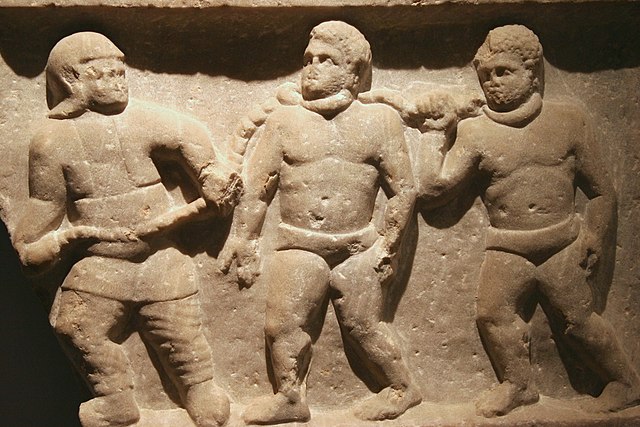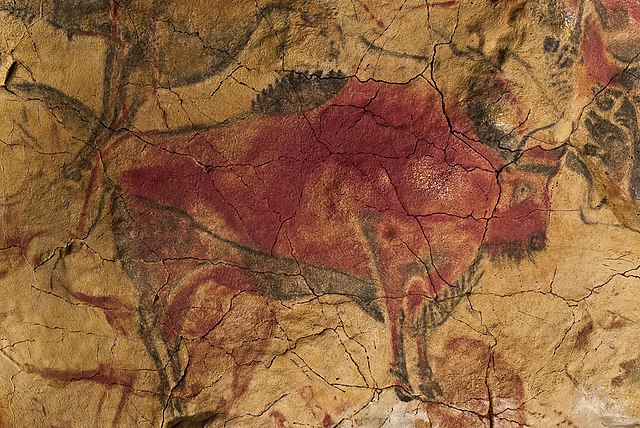A barbarian is a member of a people who are not part of one of the ancient 'great nations'. The designation is usually applied as a generalization based on a popular stereotype; barbarians can be members of any nation judged by some to be less civilized or orderly but may also be part of a certain "primitive" cultural group or social class both within and outside one's own nation.
The Sack of Rome in 410 by the Barbarians by Joseph-Noël Sylvestre, 1890
A preconnesian marble depiction of a barbarian. Second century AD.
"Germanic warriors" as depicted in Philipp Clüver's Germania Antiqua (1616)
Slaves in chains, relief found in Smyrna (present day İzmir, Turkey), 200 AD
Culture is a concept that encompasses the social behavior, institutions, and norms found in human societies, as well as the knowledge, beliefs, arts, laws, customs, capabilities, and habits of the individuals in these groups. Culture is often originated from or attributed to a specific region or location.
Human symbolic expression developed as prehistoric humans reached behavioral modernity.
Religion and expressive art are important aspects of human culture.
Germans marching during a folk culture celebration
Pygmy music has been polyphonic well before their discovery by non-African explorers of the Baka, Aka, Efe, and other foragers of the Central African forests, in the 1200s, which is at least 200 years before polyphony developed in Europe. Note the multiple lines of singers and dancers. The motifs are independent, with theme and variation interweaving. This type of music is thought to be the first expression of polyphony in world music.








